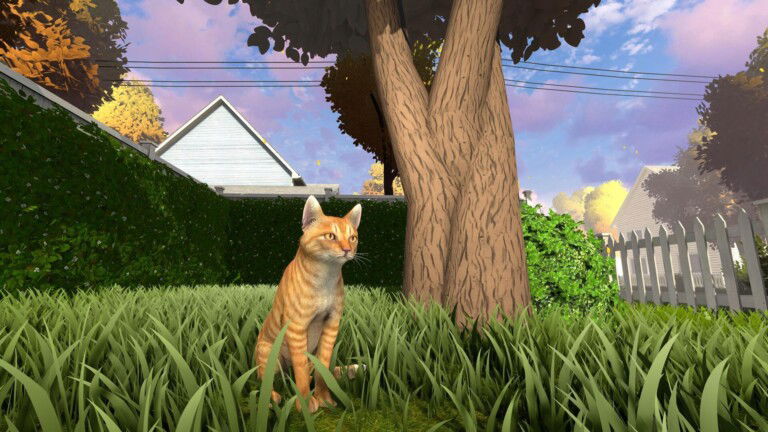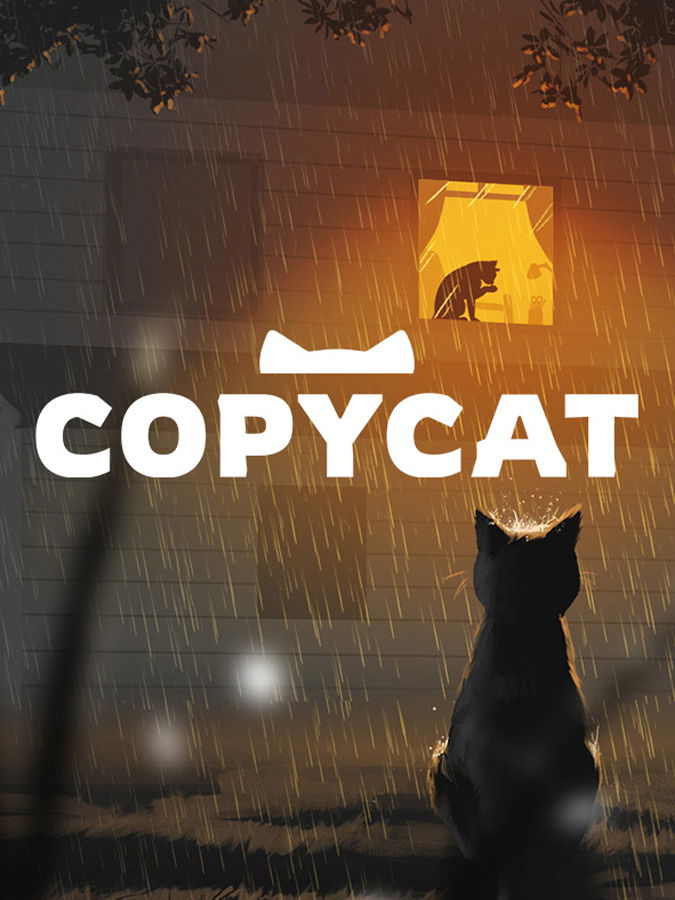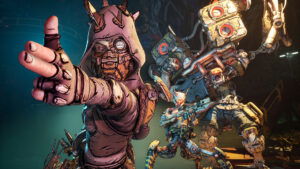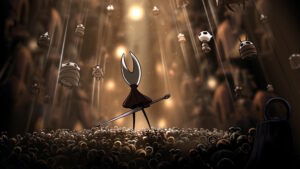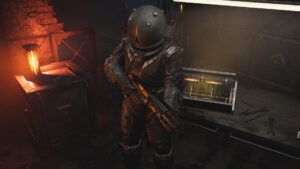Copycat begins with this quote: “Home is not about where you live, but where you are needed most.” At first, I rubbed my chin at such a poignant statement, knowing that I was playing a game about a cat. Then, after two and a half hours of playing, I sat staring at my screen, breathing a heavy sigh, knowing that the emotional journey was over.
Indeed, Copycat is a game that explores themes of belongingness and rejection, the need to find a home, and having that safety and security taken away from you. These symbolic concepts are sure to resonate with many players who also own pets.
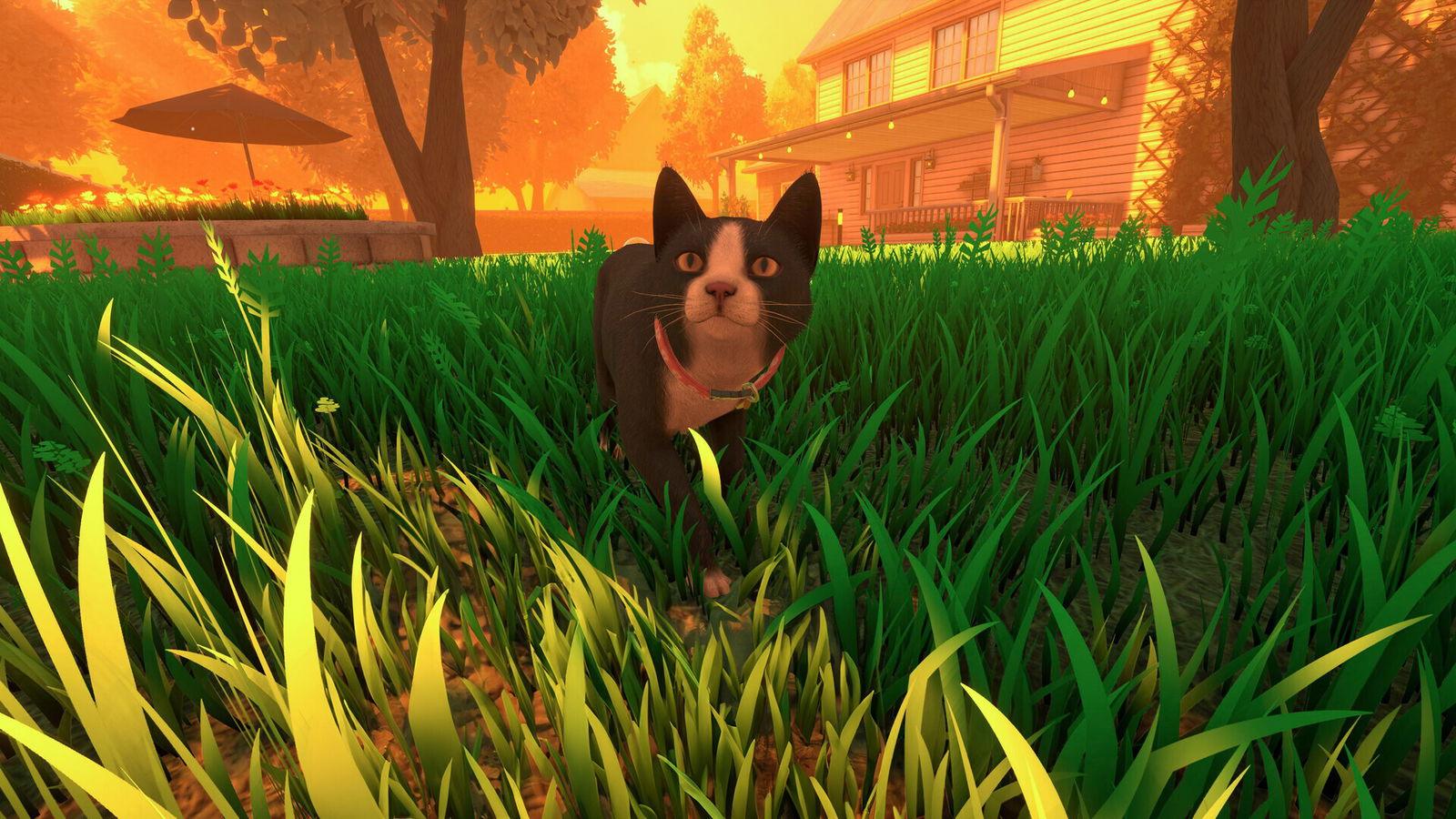
What first drew me in when I heard of Copycat was the notion of playing as an adorable feline adopted from an animal shelter. My wife and I have nine cats, several of whom are rescues and adoptees. Some were strays that just happened to stay in our backyard, and we couldn’t help but give them food (and now they’re permanent residents). One, in particular, is a chubby and sweet Siamese–we adopted him from his previous owner, a nun who had to migrate to another country.
Likewise, since it’s possible to choose the type of cat you’d adopt in-game, I picked someone with “one orange brain cell.” This one reminds me of a little skinny orange furball that we found crying at a vacant lot several years ago, who’s now as healthy as can be.
“Copycat is a game that explores themes of belongingness and rejection, the need to find a home, and having that safety and security taken away from you.”
From these beginnings, I became engrossed as I saw the bond develop between the cat, Dawn, and Olive, an old lady. At first, Dawn was aloof and hesitant, as she had been traumatized in a previous household. Then, Dawn slowly begins to trust Olive–the old lady plays, pets, and feeds Dawn, even though she also happily knocks over and rips apart furniture.
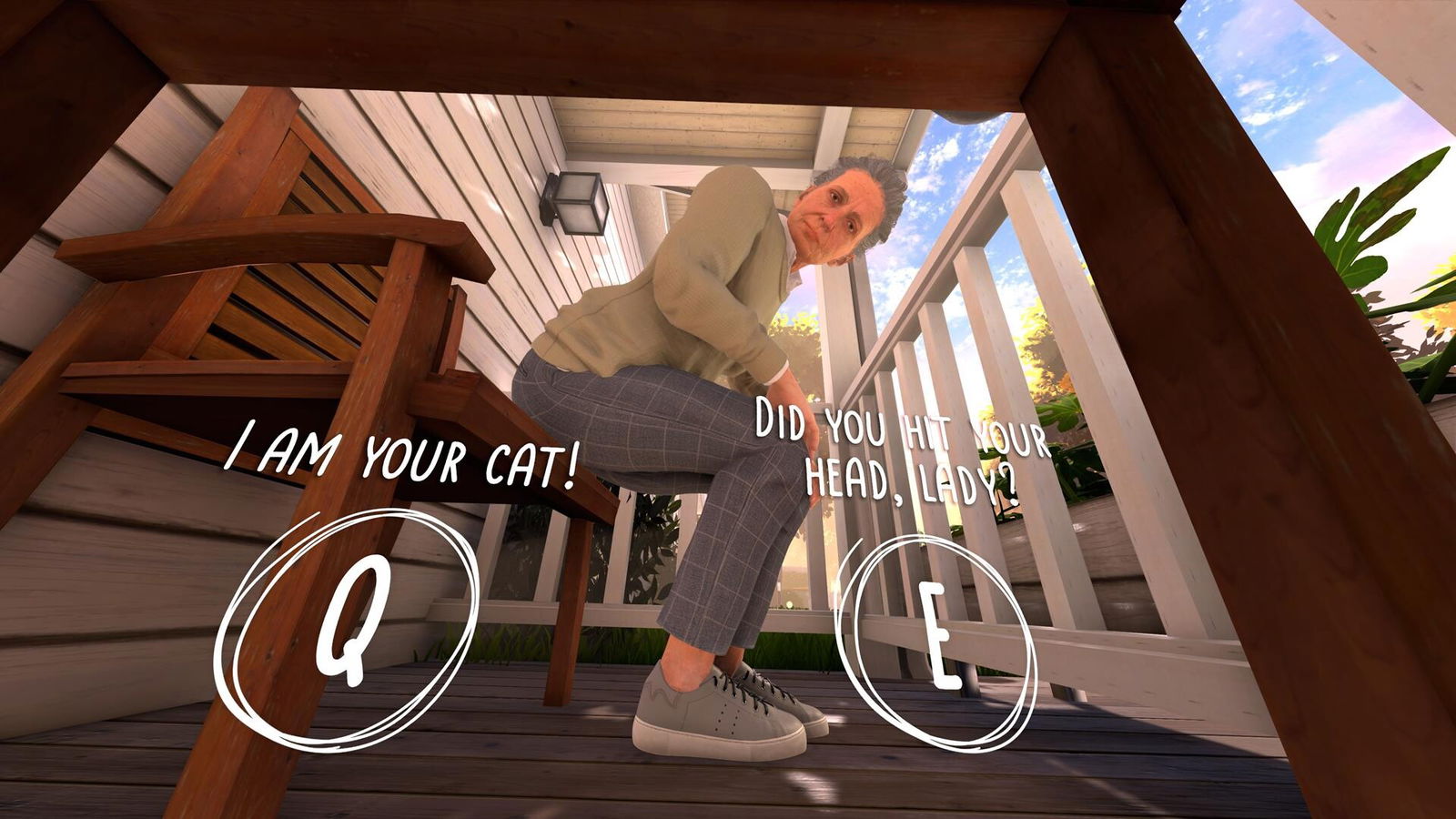
Moreover, you get a glimpse into Dawn’s inner thoughts, with text scribbled on walls and objects and a National Geographic-esque narration, as she comes to grips with her dreams of becoming a wild cat. Speaking of dreams, Copycat has several short dream sequences, often in surreal and vivid locations. There are parts where Dawn is chasing the shades of rabbits, burning down paintings, or jumping on plates to reach her bowl.
However, Olive also suffers from emphysema, and her daughter, Mae, knows that she’s not fit to take care of a pet since she can’t even take care of herself. This was something that elicited nods of agreement from me and my wife, since we’ve also gotten complaints from our old folks whenever they dropped by and complained about all the cats we own.
Tragedy then strikes, as Olive is rushed to the hospital and Dawn, left inside the house for too long, starts ransacking the whole place faster than the Visigoths when they booked a vacation in Rome. Mae, aghast, throws Dawn out to the street. Eventually, Dawn notices that another cat has taken her place, and she’s left to fend for herself.
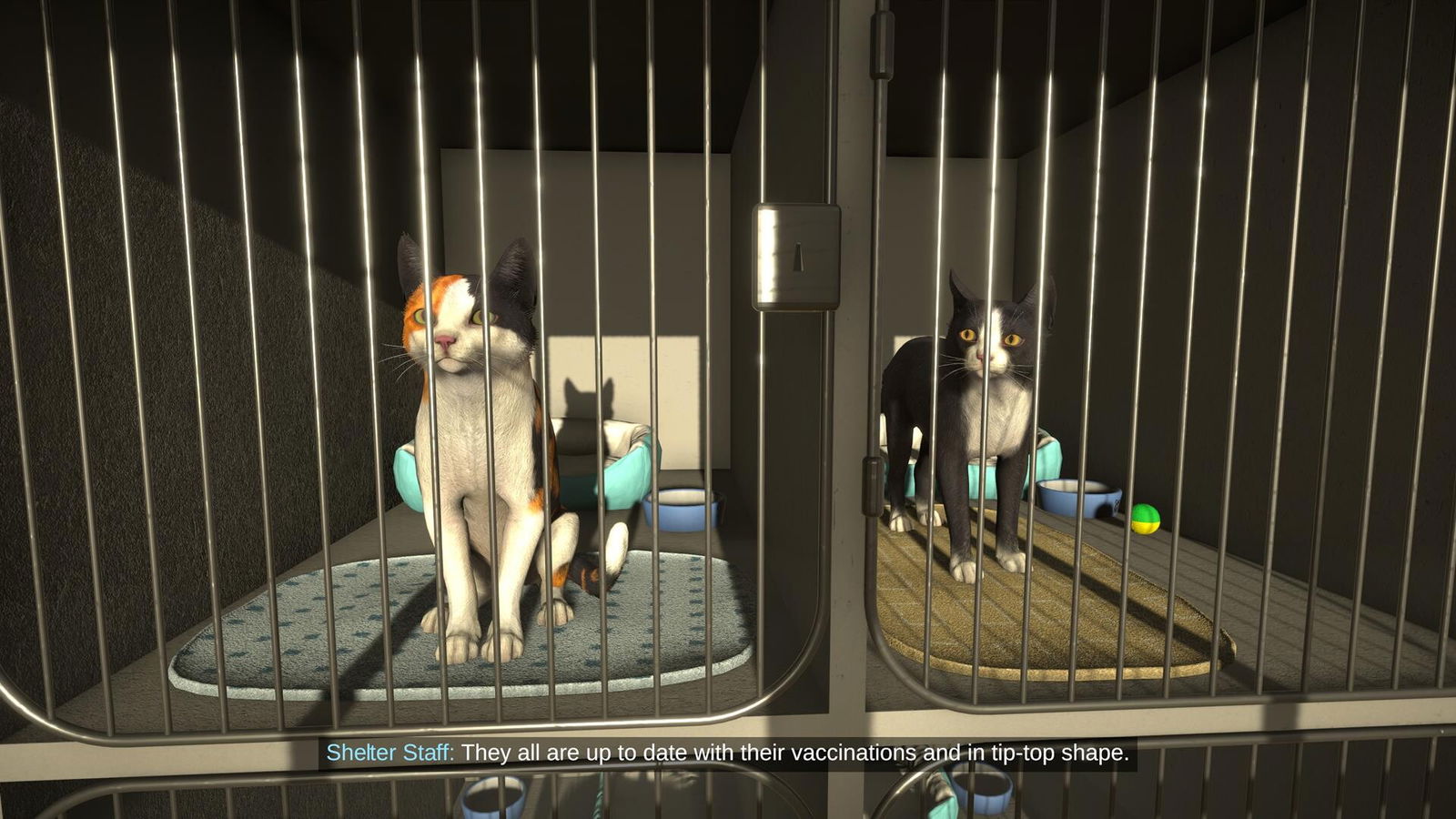
What follows is an unforgettable journey, where Dawn attempts to win back Olive, doing everything she can for her “hooman” to recognize her again. It’s a story that’s filled with emotional gut punches and moments that made me yell in anger. (I don’t want to spoil things, but the game does take place in Australia. If you know, you know.)
It also goes without saying that Copycat is more of a cozy game than a full-fledged adventure in the vein of sci-fi/cyberpunk-inspired Stray or Little Kitty, Big City. Platforming controls are rather simple and straightforward, where you jump on obstacles and traverse awnings. Similarly, there are quick-time events (QTEs) that are also fairly easy. These include pressing a button when the icon is in the center of the visual cue, or pressing keys on the keyboard to match the letters on the screen. Even if there were a few “typing sessions/fight sequences” that caused me to make mistakes, there was no challenge since I was able to retry without complications.
“…Copycat remains a short-but-sweet offering, something that the two-person team from Spoonful of Wonder should be proud of.”
Additionally, there are sections where you have to navigate obstacle-filled streets, where Dawn is either being chased by dogs or is rushing to return home. These are fairly simple tasks where I had to press the “A” or “D” keys to switch lanes from left to right.
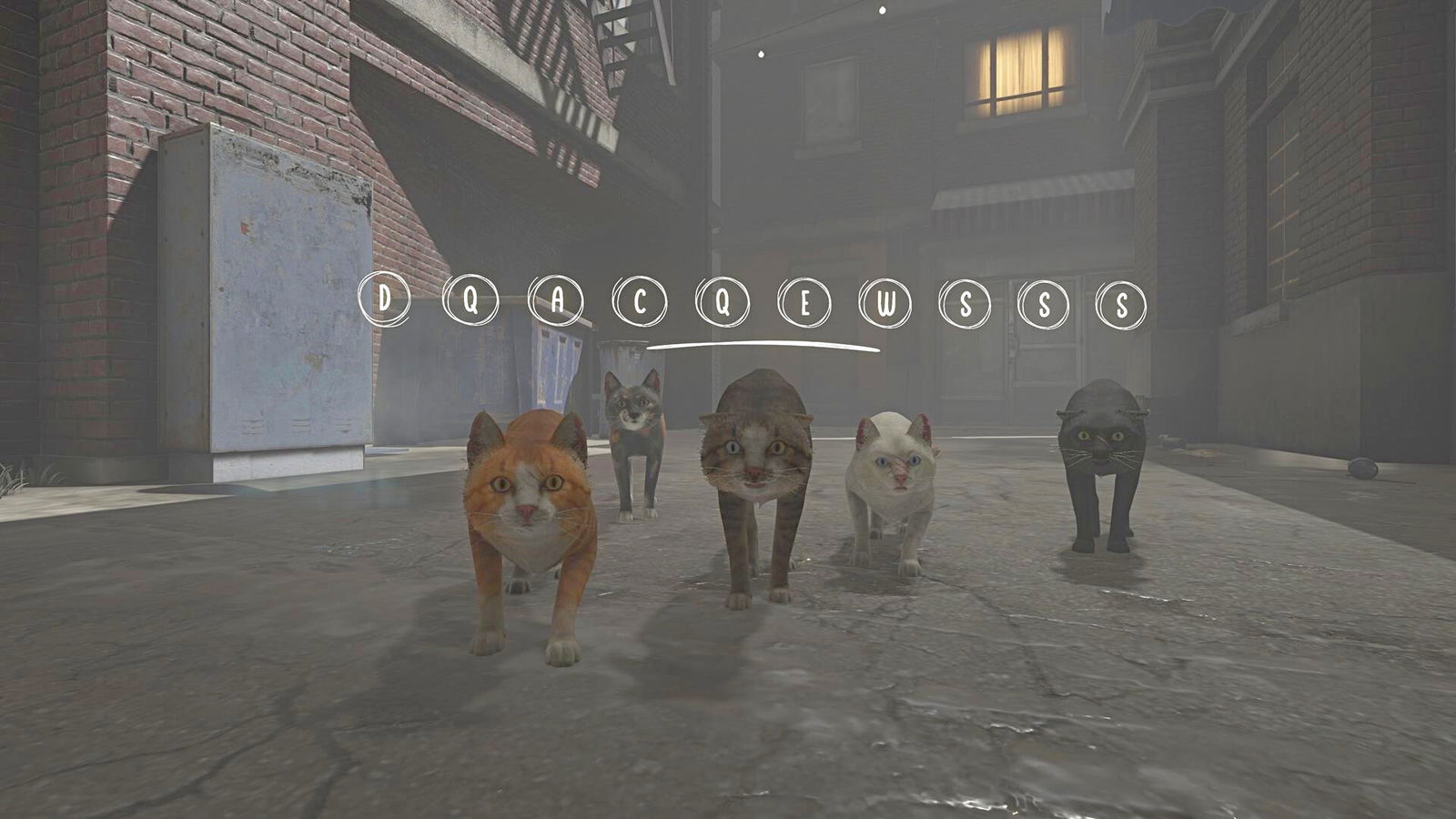
Overall, Copycat is a relatively easy and unchallenging game, one that you can finish in under three hours. It might be a little off-putting for some, especially those who are looking for a longer campaign or more engaging mechanics.
That being said, Copycat remains a short but sweet offering, something that the two-person team from Spoonful of Wonder should be proud of. There were quiet moments when I saw Dawn all by her lonesome, filled with anxiety and doubt, unsure if she was still loved or wanted. Likewise, there are tearjerker segments where Olive starts to wonder if she’s a responsible pet owner.
It’s a story of grief, longing, and acceptance, a story about finding your place, your home, and the people you truly cherish. It’s the story of a cat, expressed in a meaningful manner that’s sure to tug at your heartstrings, and how people, too, should see the bonds and relationships through the eyes of our pets.
